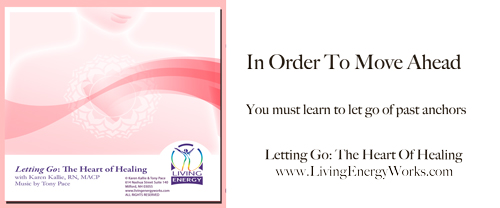 Defining the issue: Do you ever notice that your anger seems out of bounds for the current situation? If you find yourself in such a situation, it can be helpful to ask yourself if this anger has roots in an earlier life situation. Do you remember a time in the past when you first felt this way, or a time when this feeling was particularly meaningful? Often anger that has been allowed to fester or left unaddressed goes underground only to reemerge with the power and heat of steam blowing out of a pressure cooker!
Defining the issue: Do you ever notice that your anger seems out of bounds for the current situation? If you find yourself in such a situation, it can be helpful to ask yourself if this anger has roots in an earlier life situation. Do you remember a time in the past when you first felt this way, or a time when this feeling was particularly meaningful? Often anger that has been allowed to fester or left unaddressed goes underground only to reemerge with the power and heat of steam blowing out of a pressure cooker!
Long held childhood wounds to the self can be touched off by a passing remark or a stranger’s behavior. Asking some very direct questions about your self image, sense of personal identity and power and beliefs can be helpful. When anger has its roots in an earlier, perhaps traumatic or abusive time, it may be important to have some support and guidance moving through the process of healing and release.
If anger seems to have become a well-worn rut in your nervous system, it can take time and a multifaceted approach to change or release it. For some people a support group that focuses positively on anger management can offer support, understanding and skill building. There are also many books on this topic and many of them are written in workbook format so you may go through the stages of processing and learning at your own speed.
Anger can be healthy¦On the opposite end of the spectrum from explosive anger is suppression. There is a belief in some cultures that anger is never justified. The rationale is that if we are good, kind, spiritual etc., we will never be angry. It is important to remember that anger, just like other feelings, is a natural, human and may even have a deeper message that is important for you to note. For instance, anger can be a signal to you that your boundaries have been crossed, or that you have been insulted, devalued or dismissed. Knowing how to use anger as a signal of something deeper and having the ability to respond appropriately to the situation is be healthy for us physiologically as well as for our relationships.
Recognition of healthy anger One way we can know if anger is appropriate and healthy is if it dissipates once we have acknowledged and expressed our feelings. Often healthy anger needs nothing more than honest, direct, non-harmful expression. When this is not the case then anger may be pent up rage and it needs to be dealt with in a different way. Rage is a more complex state and usually needs to be worked in stages and it is often better to have guidance and support with this kind of experience.
Positive tools for releasing anger Writing letters, punching pillows or banging nails, art therapy, verbal expression to the air or to a willing friend or therapist are all appropriate outlets for releasing anger. These methods help to bleed off some of the energy that would initially make problem resolution impossible. Once the intensity has been dealt with, other techniques focused on resolution can be employed. It should be noted when contemplating cathartic tools, that neurological pathways can be grooved deeper forming a superhighway for anger to become a way of being rather than a release of the pent up energy. We are meant to feel but not to get stuck in any one emotion habitually or for extended periods.
Children’s spontaneous expression of emotion and return to play and laughter is a model for healthy expression. Letting yourself feel an emotion without resistance and guiding it toward release works in most cases. It is crucial to include release as part of your process.
It is beneficial to get help recognizing and releasing deeply held anger. Meditation and breath-work are useful to identify hidden areas of anger and its sources. Certain types of breath work are particularly helpful when a deep release of patterns from the body-mind is required. Since energy work goes to the heart of where emotions live they are very effective for releasing anger.

Leave a Reply
You must be logged in to post a comment.